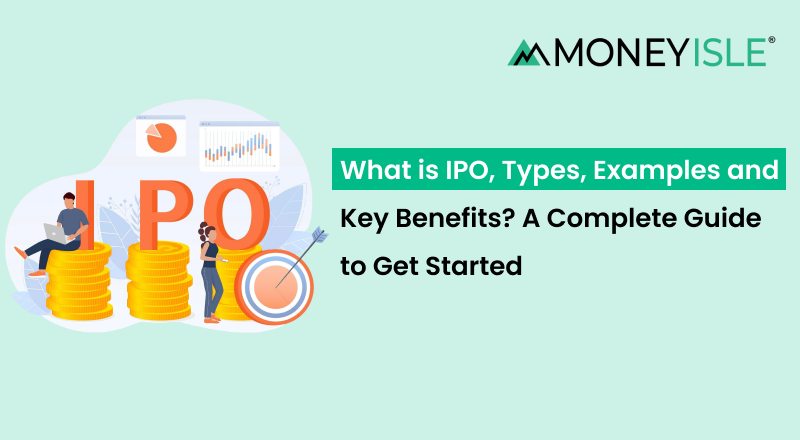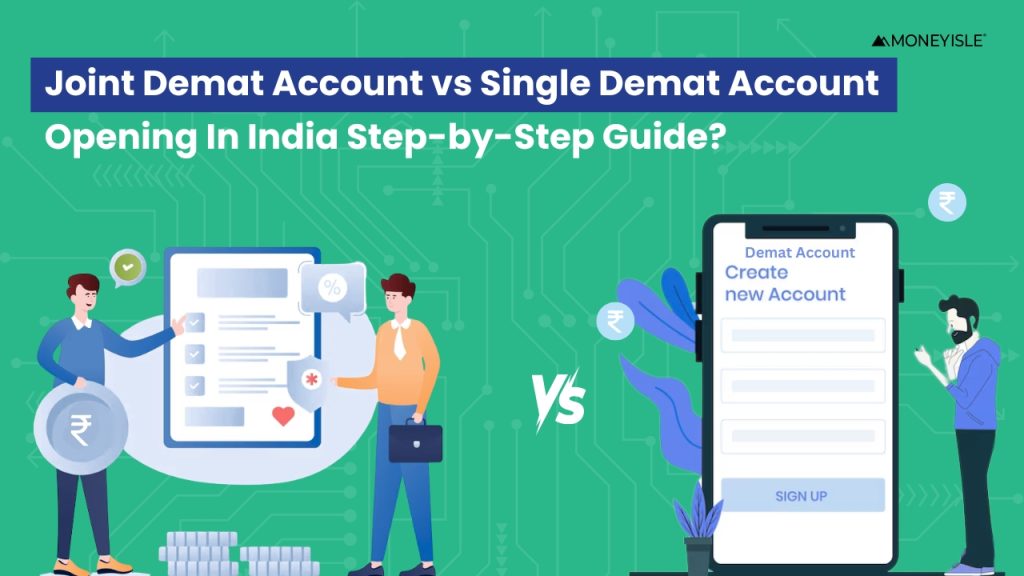Venturing into the world of IPOs isn’t just about buying shares — it’s about unlocking the chance to own a piece of a company’s future. Many of today’s market giants once started as IPOs, and those who held on reaped massive profits.
The question is: will you be part of the next big success?
India’s IPO world is booming — in Q1 2025 alone, 62 IPOs raised US$2.8 billion and made up 22% of global IPO activity, per an EY report.
The National Stock Exchange of India (NSE) set a record in 2024 by facilitating 268 successful IPOs that together raised ₹1.67 lakh crore (≈ US$19.5 billion) — the highest number in Asia.
If you’re a first-time investor, this isn’t just noise — it’s your chance. IPOs may look complex, but they offer early access to companies before they blow up in valuation. And with data this strong, holding the right IPOs could be your ticket to substantial profits.
Who starts an IPO?
Imagine walking past the bustling streets of Chandni Chowk, watching a small family-run business flourish over the years. One day, that very business decides to open its doors to the public, offering shares to investors like you for the first time. This moment, known as an IPO (Initial Public Offering), transforms ordinary investors into part-owners, allowing them to share in the company’s growth and success.
The first time a company sells its shares in the market privately is called an IPO or Initial Public Offering. This achievement allows businesses to raise capital and provides investors with an opportunity to enjoy early growth prospects.
It is every investor’s dream to be part of a success story. This guide simplifies the process, covering ipo investment, types of IPO, how IPO works, real examples, and the most significant benefits.
What Is an IPO?
The first step to smart investing is understanding IPO.
An IPO is the process through which a privately-owned company opens its ownership to the general public by selling shares. It provides companies with funding and investors with potential financial gains.
Transparency and regulation are the pillars of IPOs. Once listed, stock exchanges like NSE and BSE regulate the company. This ensures investor liquidity, credibility for the company, and access to growth capital.
Types of IPOs
Choosing the right type of IPO can make a huge difference.
- In a Fixed Price IPO, the share price is set in advance, offering clarity and simplicity. The drawback is that the price may not reflect true market demand.
- Book-Building IPOs reflect market interest dynamically. The final share price is determined by investor demand within a price range. Companies prefer this method to achieve fair market valuation.
Understanding IPO types is essential for informed investment. Book-Building IPOs provide dynamic pricing, while Fixed Price IPOs are beginner-friendly. Knowing this helps investors plan their ipo investment strategy effectively.
Recommended Read: 7 efficient ways to increase your chances of IPO allotments
How IPO Works – IPO Cycle
- The IPO cycle is a structured journey from private to public. It begins with underwriters managing pricing and marketing, followed by submitting the Draft Red Herring Prospectus (DRHP). Once approved, the final Red Herring Prospectus (RHP) is released to investors.
- Each step is designed to protect investors and ensure transparency. Pricing, roadshows, allotment, and listing follow sequentially. Investors submit applications specifying the number of shares they wish to buy.
- Allotment depends on investor demand and subscription ratios. Oversubscribed IPOs use proportional allocation or lottery systems. Once listed, shares can be traded, providing liquidity and potential financial gains.
How to Apply for IPO & How to Buy IPO
Applying for an IPO is simple and extremely profitable with the right steps.
1. Get your Demat Account Ready
You need a valid Demat account. Get yourself onboarded in a simple hassle free way, with right guidance and support through every step. All you need is
- Your mobile number to be linked with Aadhaar,
- Copy of your PAN,
- Cancelled Cheque,
- Passport Photograph,
- Your Signature,
- Income Proof,
- Nominee Proof.
2. Timely applications increase allotment chances.
Enter the number of shares desired and make payment before the IPO closes. Ensure sufficient funds to avoid application rejection.
3. Allocation is key to planning investments.
Oversubscribed IPOs use proportional or lottery-based allocation. Following platform instructions carefully improves your chance of getting shares.
How Moneyisle Stands Out as a Stock Broker – Winning the Trust of 2k+ Retail Customers
- Extremely Simple Onboarding in Minutes
Moneyisle’s onboarding process for opening a Demat Account stands out from the rest for its outstandingly simplified way.
Experience the most hassle free eKYC process with Moneyisle.
- Compassionate support for every step
Not every stock broker in the market has that manpower and compassion to accommodate your every query. You get complete support in each of the steps, including answering your most basic questions.
- Simple web based platform for IPO bid
Moneyisle gets your IPO bidding easy and hassle free. Bid for your IPO through UPI over PriMarket, a simple web based platform.
If you do not have UPI, you can execute the process through the bank with your netbanking facility.
- Guidance for IPO bidding
Not all IPOs are potentially profitable.
- How do you take the best call?
- How do you understand the financial health of the company?
- Which is the best IPO bid considering the economic turbulence?
The experienced consultants of Moneyisle offer the handholding and guidance towards the right step in IPO bidding.
- Exceptional guidance
Got questions on IPO bidding, share trading, or Demat/Trading account opening? Moneyisle team responds within 24 hours — and in special cases, the founder himself is just an email/call away for guidance and hand-holding.
- Integrated share trading platform
Primarket is very well integrated with their trading platform, GraphUp to enable seamless share trading. Login to their app and click on the button to get redirected to Primarket and place your IPO bid.
Recommended Read: Zepto IPO – Before the Big IPO Leap it is Time For Zepto to Put its House in Order
The Major Advantages of IPO Investment
IPO investment offers significant advantages for smart investors.
- Potential High Returns: IPO shares can soar post-listing, rewarding early investors.
- First Mover Advantage to Growth Companies: Investors gain early access before companies become widely recognised.
- Liquidity: Listed shares are tradable, providing flexibility and an exit strategy.
- Capital for Growth: IPOs raise funds for expansion, infrastructure, or strategic plans.
- Credibility and Visibility: Public listing enhances reputation with investors, clients, and the market.
- Portfolio Diversification: IPOs allow investors to explore high-growth sectors and diversify investments.
The Most Important Do’s:
While the benefits are attractive, careful research is essential. Consider market volatility and company performance.
Always seek guidance from the most experienced broker in the market, who is resilient enough to address your individual queries and guide you about the right IPOs, keeping in mind the different economic conditions.
Smart Investing Starts with Knowledge. Invest in IPOs through PriMarket, MoneyIsle’s platform. Apply seamlessly, pay via UPI, and track effortlessly.
Conclusion
IPOs provide a unique gateway to wealth creation and company growth. They allow investors to access emerging companies while enabling businesses to raise essential capital.
Bid IPOs, invest wisely, track financial holdings, and grow your wealth with confidence.
Manage investments, monitor listings, and make informed decisions at MoneyIsle.
FAQ Section
An Initial Public Offering (IPO) is when a privately-held company issues shares to the public to raise capital. Investors can purchase shares during this period and potentially benefit from company growth. Once listed, shares can be traded on stock markets.
IPO stands for Initial Public Offering, which is the process of offering shares of a privately-owned company to the public.
The two main types are Fixed Price IPO, where shares have a fixed price, and Book-Building IPO, where the price is determined by market demand. The choice depends on company strategy and market conditions.
The IPO cycle includes engaging underwriters, submitting the DRHP, issuing the RHP, pricing, roadshows, share allocation, and listing. It ensures transparency and investor protection.
Create a Demat account linked to your bank or UPI. Apply via MoneyIsle before the IPO closes. Enter the number of shares required and submit the payment.
Allotment depends on demand and subscription ratio. Proportional allocation or lottery methods are used in oversubscribed IPOs. Following platform instructions carefully is essential.
After listing, shares can be freely bought or sold. Investors may profit if the market price exceeds the IPO price. Companies gain capital and enhance public visibility.
The minimum investment depends on lot size, typically starting around ₹14,000. This varies based on company pricing and share quantity.











